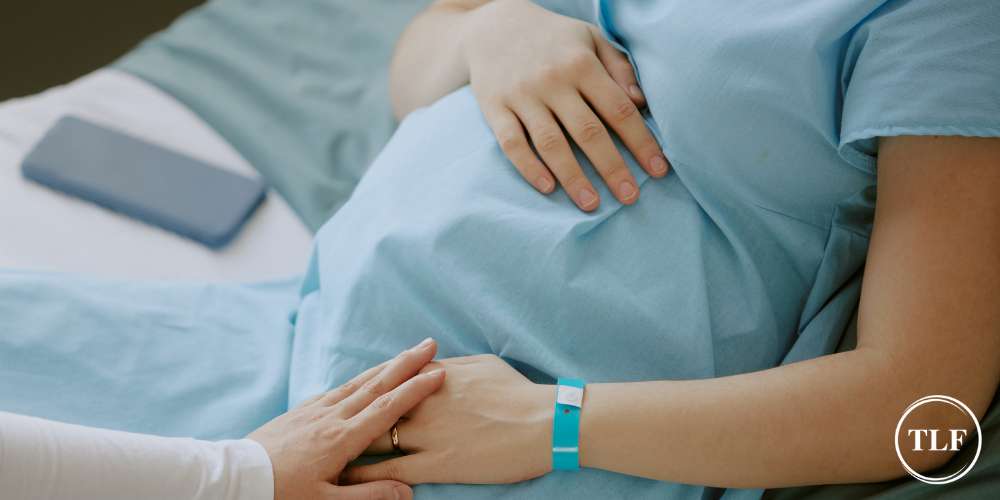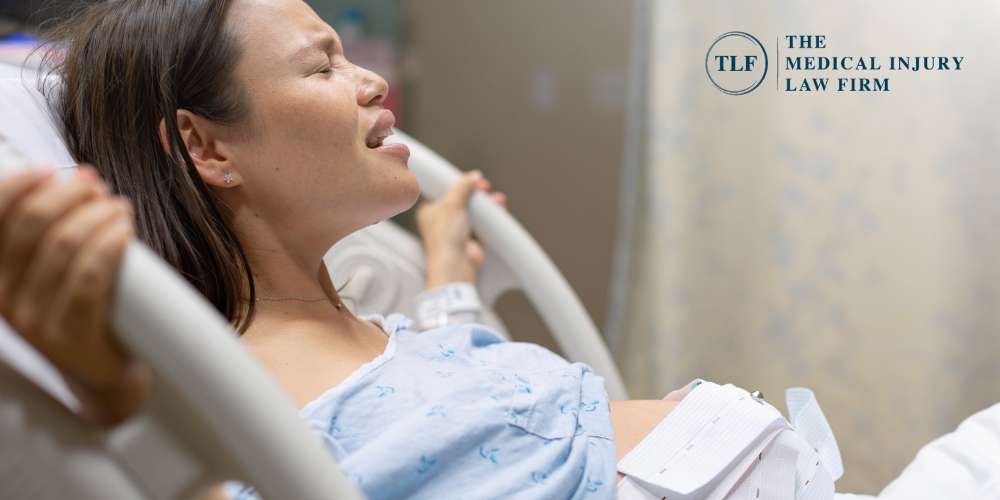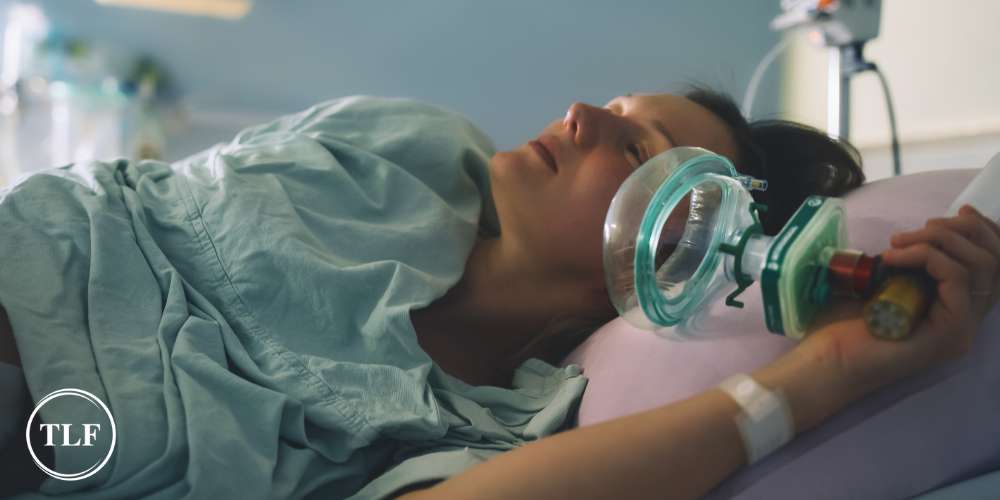Childbirth is supposed to be a beautiful and transformative experience, but when mothers suffer from vaginal tears or episiotomy complications, they can suffer from long-lasting negative health outcomes. At TLF: The Medical Injury Law Firm, our attorneys understand the effects that these complications can have on new mothers, especially when they’re the result of negligence.
Episiotomies can sometimes lead to unexpected complications such as infection, excessive scarring, and prolonged pain following a vaginal birth. Similarly, vaginal tears can range from mild to severe, with more serious injuries requiring surgical repair and leading to potential long-term issues like incontinence or painful intercourse.
If you’ve suffered from episiotomy complications or vaginal tears due to the actions or inactions of a healthcare provider, our Kentucky and Ohio birth injury lawyers at TLF are here to represent you. Our experienced attorneys are dedicated to helping mothers who have been affected by childbirth injuries caused by medical malpractice.
Call us today to schedule a free consultation and learn how we can help you pursue the compensation and justice you deserve. You can call our Ohio number at (513) 651-4130, our Kentucky number at (859) 578-9130, or call us toll-free at (800) 698-4054.
What is an Episiotomy?
An episiotomy is a surgical procedure where an incision is made in the perineum, which is the area between the vaginal opening and the anus. This is to widen the birth canal and assist in childbirth during a vaginal delivery. It’s typically performed to prevent severe spontaneous tearing, reduce trauma to the baby’s head, or speed up delivery in emergencies.
There are two main types of episiotomies. A midline episiotomy, also known as a median episiotomy, involves a straight incision down the center of the perineum. A mediolateral episiotomy involves an incision made at an angle to reduce the risk of extending into the anal sphincter.
A routine episiotomy is performed as a standard practice during childbirth to prevent severe tearing of the perineal skin, often without a specific medical reason. In contrast, a restrictive episiotomy is done only when necessary, typically in cases of fetal distress or when other complications arise that make a controlled incision beneficial to the delivery process. Nowadays, doctors tend to practice restrictive episiotomy and only make an episiotomy incision when medically necessary.

What are Vaginal Tears?
A vaginal tear is a spontaneous laceration that occurs in the vaginal tissue, perineum, or surrounding structures during childbirth as the baby passes through the birth canal. These perineal tears vary in severity, ranging from minor superficial injuries to deep wounds that affect muscles and even the anal sphincter.
Vaginal tears are more common in first-time vaginal births, deliveries involving large babies, or when forceps or vacuum extraction is used.
Episiotomy vs. Natural Tear
An episiotomy is a controlled surgical incision made by a healthcare provider to enlarge the vaginal opening during childbirth, whereas a natural vaginal tear occurs spontaneously as the baby is delivered. Episiotomies are planned and performed with sterile instruments, allowing for a precise cut that can be sutured cleanly, while natural tears vary in depth and direction, sometimes making them more difficult to repair.
Although the routine use of episiotomy was once more common to prevent severe tearing, research has shown that it can increase the risk of complications such as excessive bleeding, infection, and prolonged healing. In contrast, natural tears, especially minor ones, often heal more quickly and with fewer complications. However, severe vaginal tears can be more unpredictable and may extend into surrounding tissues, sometimes leading to long-term issues like incontinence or painful scarring.

Types of Vaginal Tears
Vaginal tears during childbirth are classified into four degrees based on their severity and the tissues affected. Below are the different types of perineal tears that mothers can suffer from during childbirth
First-Degree Vaginal Tear
A first-degree vaginal tear is the least severe type, affecting only the skin and superficial tissue around the vaginal opening. These minor tears may cause mild discomfort but often heal on their own without the need for stitches.
Second-Degree Vaginal Tear
A second-degree vaginal tear extends deeper, affecting both the skin and the underlying muscles of the perineum. This type of tear typically requires stitches to promote proper healing and may cause moderate perineal pain and swelling during recovery.
Third-Degree Vaginal Tear
A third-degree vaginal tear involves the skin, perineal muscles, and part of the anal sphincter muscle. Third- and fourth-degree tears are more likely in cases of shoulder dystocia, when the baby’s shoulder is caught on the mother’s pelvic bone. These more severe lacerations often require surgical repair and can lead to complications such as incontinence or prolonged pain if not properly treated.
Fourth-Degree Vaginal Tear
Fourth-degree lacerations are the most severe, extending through the vaginal tissue, perineal muscles, anal sphincter, and into the rectal lining. These tears require immediate surgical intervention and can result in long-term complications, including fecal incontinence and dysfunction within the pelvic floor muscles.
How Long Do Vaginal Stitches Take to Heal?
The healing time for vaginal stitches depends on the severity of the tear or episiotomy, but most stitches dissolve within a few weeks. First- and second-degree tears typically heal within two to three weeks, while third- and fourth-degree tears may take several weeks to months for full recovery.
Proper wound care, rest, and pain management can help speed up healing and reduce the risk of infection or complications.

Complications from Episiotomies and Vaginal Tears
Both episiotomies and vaginal tears can lead to complications that affect a person’s recovery and long-term health. Common issues include pain, swelling, and wound infection at the incision site, which can delay healing. More severe perineal tears, especially third- and fourth-degree tears, may result in long-term problems such as fecal or urinary incontinence, sexual dysfunction, and pelvic floor dysfunction.
In some cases, improper healing or excessive scar tissue formation can cause chronic discomfort or the need for additional medical intervention. While most minor tears heal without complications, severe injuries require careful treatment to reduce the risk of lasting effects.
Medical Negligence and Episiotomy or Tearing Complications
Certain risk factors, like a large baby, a difficult delivery, or a first-time birth, can increase the likelihood of episiotomy complications or vaginal tears. However, sometimes, medical negligence can contribute to obstetrical perineal lacerations and any resulting complications.
This negligence can include:
- Performing an unnecessary episiotomy
- Using improper techniques during childbirth
- Failing to recognize risk factors in pregnant women
- Failing to take proper steps to prevent severe tears
- Failing to repair severe tears correctly
- Neglecting to monitor for signs of infection or other complications
- Using excessive force during delivery
- Improperly using forceps or negligent vacuum extraction
- Failing to receive informed consent for an episiotomy
When medical providers fail to take appropriate precautions or provide adequate post-delivery care, patients may experience long-term pain, incontinence, or other serious health issues that could have been prevented.

Legal Rights of Mothers Affected by Episiotomy and Tearing Negligence
In some cases, mothers who suffer unnecessary and foreseeable complications due to medical negligence during an episiotomy or vaginal tear repair may have the right to pursue a medical malpractice lawsuit. If a healthcare provider’s actions deviated from the accepted standard of care—such as performing an unnecessary episiotomy, failing to reduce perineal trauma, or neglecting post-delivery complications—the affected mother may be entitled to compensation.
Potential damages in a malpractice claim can include medical expenses for perineal laceration repair, lost wages due to extended recovery time, pain and suffering, and, in severe cases, long-term care costs for lasting complications such as incontinence, pelvic floor dysfunction, or sexual dysfunction.
In some cases, punitive damages may also be awarded if the provider’s actions were particularly reckless or egregious. If you or a loved one have suffered from negligence in the delivery room, leading to uncontrolled vaginal tearing or severe episiotomy complications, contact a local birth injury lawyer that handles episiotomy and vaginal tear claims.
How a Cincinnati or Covington Birth Injury Lawyer at TLF Can Help You
At TLF: The Medical Injury Law Firm, our experienced medical malpractice lawyers are dedicated to helping mothers who have suffered complications from negligent episiotomies or vaginal tear mismanagement. We will thoroughly investigate your case, gather medical records, consult with experts, and identify instances of provider negligence.
Our Ohio and Kentucky medical malpractice attorneys will work to hold the responsible parties accountable and fight to help you secure the compensation you deserve. We are here to provide compassionate legal support and aggressive representation to protect your rights, even in the face of severe perineal trauma.

Legal Help for Mothers Suffering from Childbirth Injuries in Cincinnati, OH, and Covington, KY
Episiotomy injuries and severe vaginal tears during birth can sometimes be the result of less-than-standard medical care. If you or a loved one has experienced a childbirth injury due to a negligent episiotomy or vaginal tear, you don’t have to face the legal process alone.
At TLF, we understand the physical, emotional, and financial toll these injuries can take on mothers and their families. Our experienced medical malpractice lawyers are committed to providing the support you need to seek justice and hold negligent healthcare providers accountable.
During this difficult time, we want to ensure that you can focus on your family as well as your recovery. Let us handle the legal process so that you can take care of what’s important. If you suspect that your childbirth injury was caused by medical negligence, don’t hesitate to contact us. Call TLF: The Medical Injury Law Firm today for a free consultation and take the first step toward holding responsible parties accountable.
You can call us toll-free at (800) 698-4054 or contact us online to schedule your free consultation.

